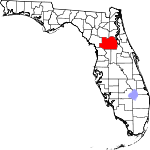Marion County Criminal Court hears all criminal cases in Marion County. Below you will find specific information about criminal cases and how they are handled in Marion County.
The Right to Counsel
The Fifth and Sixth Amendments to the U.s. Constitution give defendants in criminal cases the right to counsel/attorney. If you cannot afford an attorney one will be appointed to represent you. Like other rights a defendant has, this one can be waived as well and alternatively you can choose to represent yourself.
Marion County Required Court Appearances
In Marion County, there are both required and non-required court appearances for the defendant. At a required or mandatory appearance hearing, the defendant is required to appear in person before the court. Failing to appear at your required hearing may result in a bench warrant being issued for your arrest by the judge.

Marion County Criminal Court
If guilty, who sentences the defendant?
If the defendant is found guilty after the trial, the defendent will be sentenced. In some cases, this can occur at the same hearing the defendant is found guilty in court, in other cases a separate hearing will be required. Often the prosecution will request a particular sentence for the defendant and the judge will determine whether to enforce this sentence or impose a different sentence for the defendant.
Marion County Prosecutor
For criminal cases in Marion County, the prosecutor will be a representative of Marion County. The Marion County prosecutor reviews all evidence and ultimately decides whether to file or dismiss charges in the case. Most of the time, the prosecutor has leeway in plea negotiations and determines how the case will be prosecuted.
Appealing a Criminal Conviciton
A defendant may appeal a criminal conviction to an appellate court. In an appeal, the actual trial is not redone, but the appellate court hears arguments that the criminal case was not handled in a legal manner at the original criminal court. The appellate court can either uphold the conviction, or determine that errors were made and may request a retrial, a resentencing of the defendant or that the charges be dismissed.
What happens in Marion County at an arraignment?
In Marion County the defendant is brought into court and informed by the judge of the charges that have been filed against them along with informing them of their rights. At this time, the defendant can plead guilty, not guilty or no contest. If the defendant pleads guilty or no contest, there will be no trial and the defendant may be sentenced immediately or at a later date. If the defendant pleads not guilty a trial date is set.
What is a Plea Agreement?
A plea agreement is a deal made between the prosecution and the defendant in a case, where the defendant agrees to plea guilty to a particular charge in exchange for some concession from the prosecutor. In practice, more than 90% of criminal cases end with a plea agreement.
Jury Deliberation
In a jury trial in Marion County, after both the prosecution and defense have rested, the judge will give instructions to the jury and jury deliberations will begin. The jury will convence in a private room to discuss and deliberate the innocence or guilt of the defendant. Once the jury arrives at a unimanous decision, they will inform the judge that they have reached a decision. They will return to the court and the verdict will be read aloud. If the jury cannot reach a unaminous decision, the jury is said to be deadlocked and a mistrial will be declared in the case.
Where will Marion County criminal case hearings take place?
Criminal cases will take place at the criminal courts of Marion County. See here for the location of the criminal courts in Marion County.
Right to Jury Trial
For “Serious Crimes”, those that can have a potential penalty of 6 months in jail OR a minimum $500 penalty, the US Constitution guarantees a right to trial by jury. This is guaranteed by Article III of the Constitution and the 6th Amendment. The accused has the ability to waive their right to trial by jury.
Where can I get help for my Marion County criminal case?
The 6th amendment of the United States Constitution provides a criminal defendant with the right to an attorney. As read in the miranda rights, this means that if a defendant cannot afford to hire a private attorney a legal attorney will be appointed to the defendant to represent him at no cost to the defendant. This is often a public defender. In addition, the court clerk for Marion County will also be able to provide general information about a specific criminal case. The clerk can only provide information and is not an attorney so they cannot provide legal advice, only a licensed attorney can provide legal advice about what the best options for are for your particular case.
What is the Burden of Proof?
The term “Burden of Proof” means that the prosecutor is required to prove the guilt of the defendant beyond a reasonable doubt. If the prosecutor cannot provide proof of the defendants guilt, then the judge or jury in a trial must find the defendant not guilty. In the United States the principle innocent until proven guilty derives from this that the defendant is assumed innocent and the prosecution has the burden of proving beyond a reasonable doubt that the defendant is guilty.
Marion County Criminal Court Locations
-
Marion County Circuit Court
Address: 110 NW 1st Avenue, PO Box 1030, Ocala, FL 34478
Phone: 352-671-5604 Fax: 352-671-5600 -
County Court of Marion County
Address: 110 NW 1st Avenue, PO Box 1030, Ocala, FL 34478
Phone: 352-671-5604 Fax: 352-671-5600